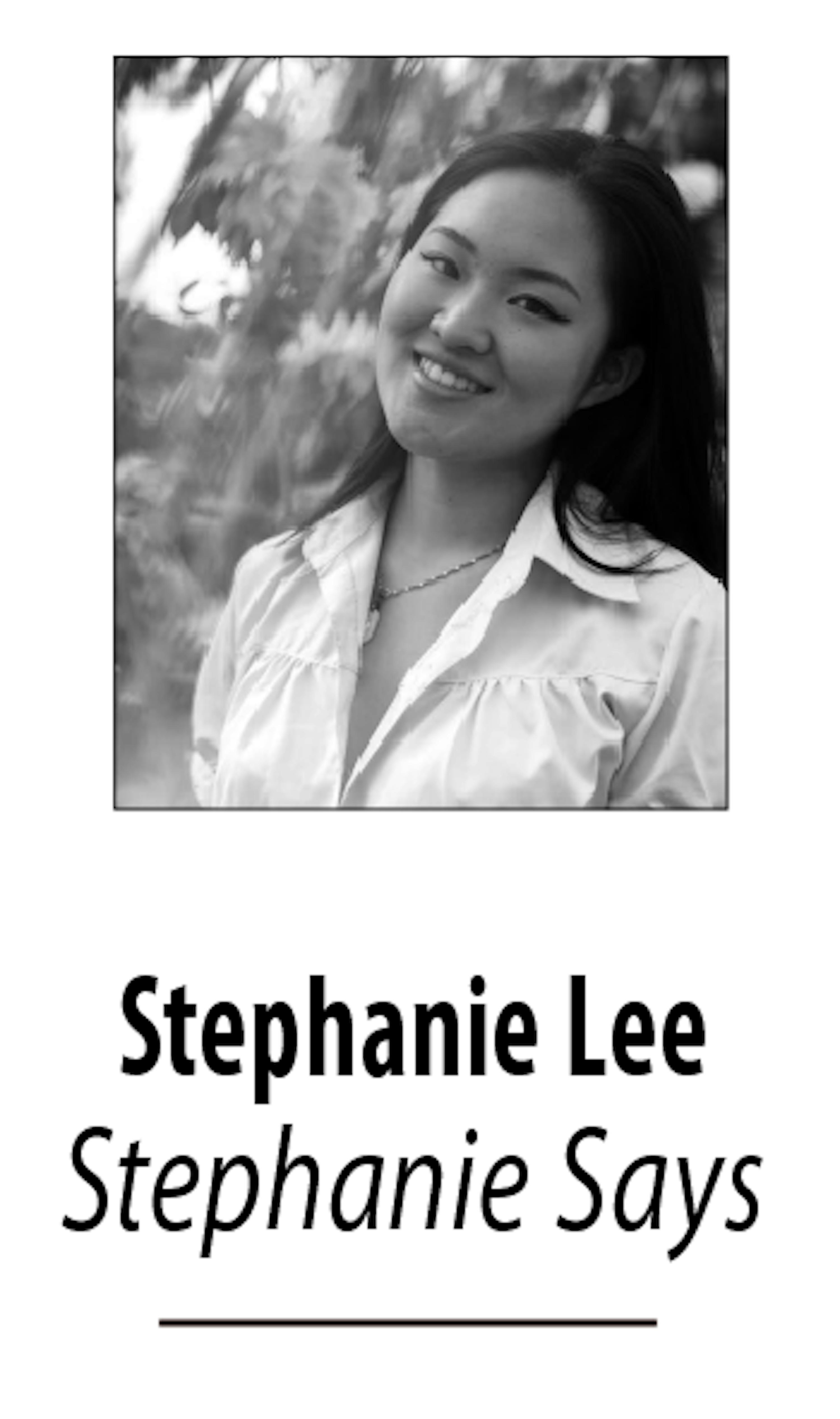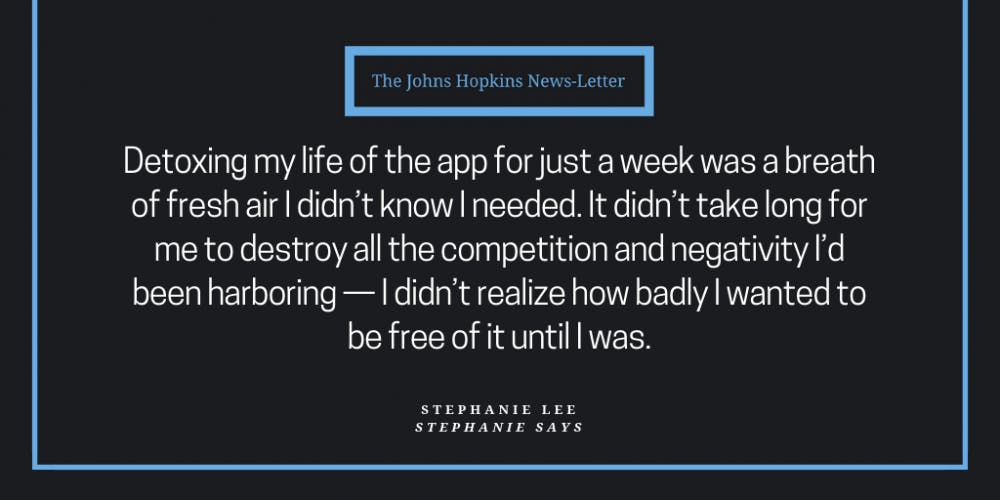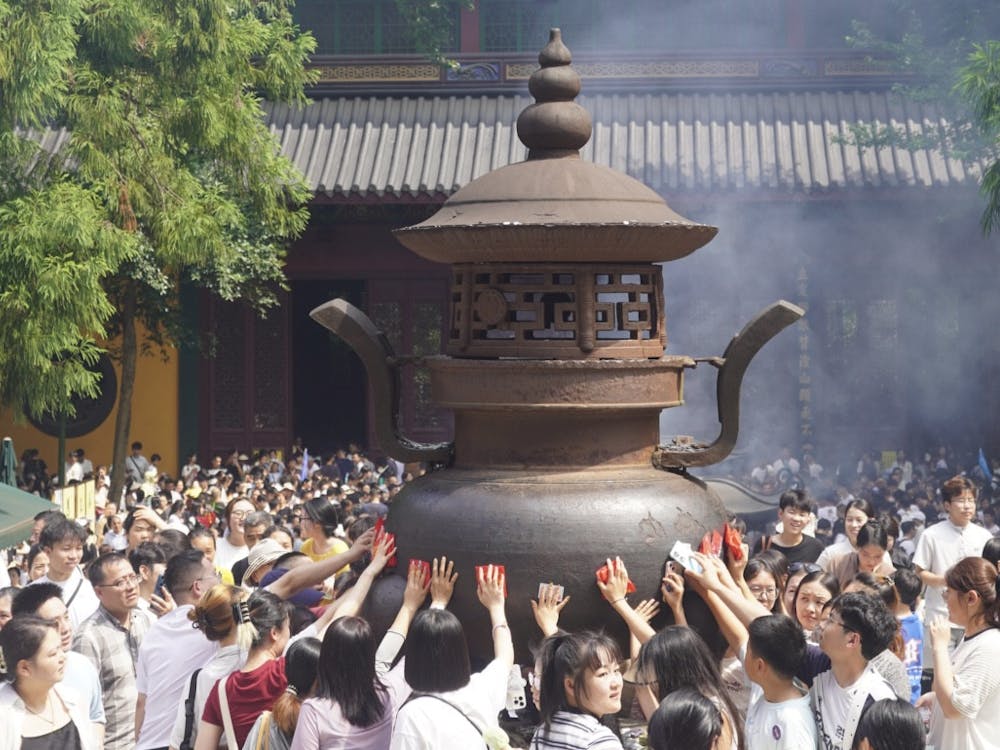
In late February, I deactivated my Instagram account for about a week. On Monday, I said goodbye to my lovely 1,449 followers and pulled the plug. I might reactivate it in a week, either out of FOMO or a desire to showcase a cute picture but definitely more for the latter reason than the former. And in a month from now, I’ll be kissing my account goodbye for another week.
This is a new tradition for me. Call me shallow and superficial for caring so much about Instagram, but it was a big deal to deactivate something that consumed such a large part of my life. If you think this sounds like a borderline social media addiction, you’re not wrong.
It was a weird feeling at first. I’ve been on Instagram since the seventh grade, when I made an account because “everyone had one.” I didn’t really start using it until the eighth grade, and I didn’t start caring about it until the ninth when I realized how fun photography and photo editing were. I began developing a theme, and within that school year, I was hooked.
I’d always been an artistic person, and I was constantly looking for outlets to channel that energy. I’d never been a cool kid. I had a big personality and was also pretty sensitive, so I wasn’t exactly popular. When I realized it was an unspoken rule that the artsier the Instagram you had, the cooler you were deemed, I felt the need to reinvent myself. Because then I felt cooler and better about myself.
Don’t get me wrong — I love editing photos. There’s something incredibly satisfying about getting likes and comments after posting a picture that you put a lot of time and effort into taking and editing. It feels so good whenever I draw up a well-designed and artistic Instagram story, but it feels even better when someone replies to it. I realize that this is why Instagram and other social sites are so addicting.
This was just one layer of the problem. A deeper — and more shameful — aspect was that Instagram shifted my attitude toward others negatively. It became so easy to slip into a toxic mentality that made me increasingly superficial, self-obsessed and competitive.
Upon graduating from high school, I became obsessed with the way I wanted to present myself to my new college peers, with the blank slate before me and the chance to be the best version of myself I could. I became addicted less to Instagram than to the idea that I should be perceived in a certain positive yet fake way.
I began to compare myself to every girl I saw on my feed. I cared about little else besides how everyone would think of me based on the photos on my account — the only thing that mattered was ratios: the ratio of the number of followers I have and the number of people I’m following, the ratio of my likes to my number of followers and comments.
This became a way to mask my insecurities; a way to cover up the fact I didn’t have many friends in high school; a means of redemption wherein I would find a twisted way of reaching happiness. I pitied the person I used to be. I hated the feeling that I was never good enough and that I would never fit in anywhere.
I sought validation, found it and let it change me for the worse. It took awhile for me to realize that nothing positive was coming from my judgement of others and how they presented themselves. It wasn’t until this past February that I really thought about the impact I was having on others.
I went through sorority recruitment, which was one of the more mentally and emotionally brutal weekends of my life. I felt judged by everyone in the room — and not in a good way. I felt like I wasn’t good enough for half of the organizations. It was like a repeat of my middle and high school insecurities, and I hated it.
I hated that I felt like I got nothing out of putting so much work into making myself look a certain way. I hated that I had invested so much time and energy into something I’d desperately wanted to believe resembled happiness and acceptance — something that made me seem like someone who belonged. I hated how toxic my obsession with my self image was making me. And what I hated most was wondering if my younger self would be proud of me now, and realizing my answer was no.
I’m a better person than that. So, one day in the middle of studying, I gave up on trying to suppress feelings of inferiority, hurt and pride and rejected the disillusioned reality I’d been living in. I deactivated my Instagram account.
It was so liberating. I didn’t realize how much of my time it was eating away. Detoxing my life of the app for just a week was a breath of fresh air I didn’t know I needed. It didn’t take long for me to destroy all the competition and negativity I’d been harboring — I didn’t realize how badly I wanted to be free of it until I was.
I re-downloaded the app a week later with a new mindset to use – not abuse – it. I had new goals; I told myself I would use the space in a more positive way. Being a kind and positive person matters far more in the future than the kind of social image I project. And even though I’m not proud of the kind of person I was, I know that if I continue on this path I will be going forward.





